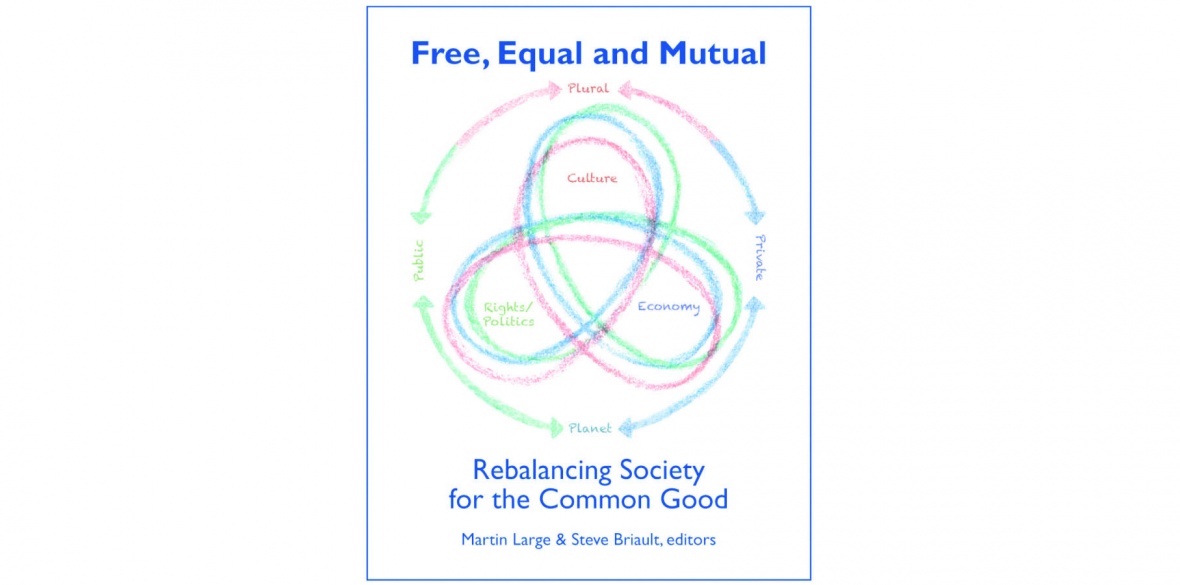This is the last article you can read this month
You can read more article this month
You can read more articles this month
Sorry your limit is up for this month
Reset on:
Please help support the Morning Star by subscribing here
Free, Equal and Mutual: Rebalancing Society for the Common Good
Edited by Martin Large and Steve Briault
(Hawthorn Press, £20)
STARTING from a premise few would deny — the world is in a state of chaos — this collection of essays, based on the philosophical ideas of Rudolf Steiner, attempts to offer a way forward.
The “Threefold Approach” argues that our societies are comprised of three main pillars, the state (in the realm of polity), business (economics) and civic society (culture) and a meaningful and collaborative system involving all of them is the way forward to ensure our survival.
While there is a large dose of rationality in this approach, it tends to overlook the question of how such a collaboration can be achieved. Without political organisations representing large groups of citizens demanding change to push for such a collaboration, it simply will not happen.
The idea of involving “business” is fine if this relates to small businesses, whether producers, shopkeepers or tradespeople, but to believe that it is feasible to win over faceless transnational corporations or monopolies is to live in cloud-cuckoo land.
It is the endemic structure of capitalism, based on the greed and the profit motive, that leads inexorably to monopolies and financial dominance, as Marx pointed out in the last century. Without understanding those underlying mechanisms and their impact, attempting any meaningful societal change is seriously hampered.
Steiner proposed his three-folding ideas in response to a war-torn Germany in the aftermath of the First World War and “as a non-ideological alternative to Bolshevism, state socialism, capitalism, imperialism and nationalism,” writes Nicanor Perlas in his introduction. With the rise in toxic nationalism and far-right populism, as well as environmental breakdown, there is certainly a need for new ideas to help solve our pressing problems.
Contributors explore such ideas and provide practical examples, such as ethical banking, agricultural innovation in the Egyptian desert, as well communal land ownership and usage.
What is difficult to digest, though, is the attempt to incorporate Steiner’s rather fanciful anthroposophical ideas into what is, on the face of it, a rational set of ideas. The editors argue that these are intended to counter the stale duopoly of state versus “free” market. But is that still an ongoing debate?
In recommending the book, Stroud Labour MP David Drew states: “Today’s economies have reached a critical turning point. This attempt at rebalancing society through a co-operative commonwealth economy based on ‘voluntary socialism’ with a rights-based state and a flourishing civil society – all working for the common good” shows a way ahead.
But, interesting as these 17 essays are, I remain to be convinced that Steiner’s ideas are the way forward — though they can provide an important stimulus for policy-makers, environmentalists and socio-cultural activists.










